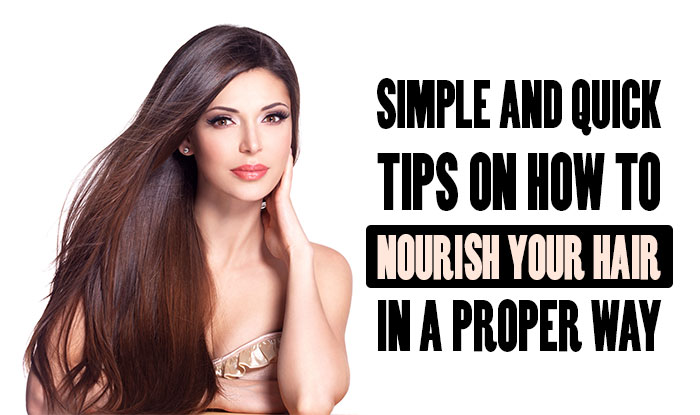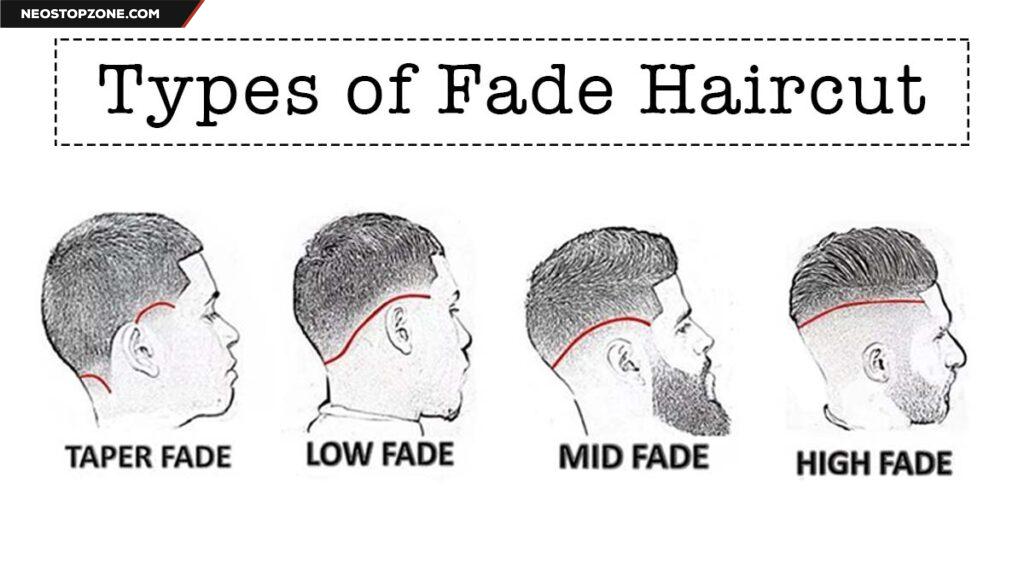How can You Nourish Your Hair the Correct Way, Quick and Easy Tips
We have prepared a list of all the ways in which you can find nutritious and healthy hair – from seasonal care to DIY home remedies and ingredients that you should take into your hair products. read on.
What is nutrition for hair?
Nourished and healthy hair is a reflection of a healthy body. Nutrition is providing essential nutrients to your hair internally and externally with the help of food and hair products. When your hair is nourished, it is less likely to break. Thus, nourishing hair is thick, soft, shiny, bouncy, and strong.
Deep conditioning treatments, your lifestyle, stress levels, the number of times you sleep, and the supplements you take also determine how healthy or damaged your hair will be. An unhealthy diet, fewer hours of sleep, illnesses, and a stressful or sedentary lifestyle can affect the quality of your hair. Also, if you use a lot of heating products or chemicals for styling, your hair will be malnourished and damaged.
How to nourish your hair?
1. Select the right products
It is important to buy products that will suit your hair. So check whether it is dry, frizzy, straight, oily or normal. Depending on your hair type, you can choose the following products:
Hair Oil
One of the best ways to nourish your hair is with hair oil. While olive oil or pure coconut oil is recommended for normal or slightly oily hair, if you have very oily hair, use rosemary or jojoba oil. The diluted essential oil can provide nutrition, and rosemary oil has antibacterial properties. For dry hair, see herbal hair oils with ingredients such as Brahmi, Almond, Amla, Arnica, and Hibiscus.
How to use
Heat a few spoons of oil and apply it to your scalp and massage it. It nourishes hair roots and follicles, stimulates the scalp, and improves blood circulation. You can also cover your hair with a shower cap after massaging the oil, which opens the pores and improves oil absorption.
Shampoo
Normal hair
The least amount of fuss is needed. All you need is a shampoo that contains nutritious ingredients such as avocado, amla, aloe vera, and surfactants to clean your hair.
Oily Hair
Your shampoo should contain ingredients such as ginseng, acai berries, chamomile, green tea or tea tree oil, and marshmallow root. Additional ingredients such as ketoconazole, salicylic acid, and selenium sulfide prevent fungal infections and keep the scalp clean. Oily hair also requires a shampoo with a pH level greater than 6.7, which is the maximum pH level of a normal shampoo.
Dry Hair
Dry Or damaged hair due to heat, bleaching, or coloring, the shampoo requires moisturizing and hydrating ingredients. This is because dry or colored hair is more porous. Look for ingredients such as argan oil, biotin, shea, or baobab oil. Baobab oil also helps prevent dandruff.
Conditioner
A good conditioner should make your hair soft and shiny, without weighing it down or making it smooth.
Normal hair
A conditioner is needed that contains ingredients such as beet extracts, milk protein, and herbal extracts to give it shine and strength.
Oily Hair
A lighter conditioner is needed, which will not make it greasy. If your hair is too long, it has to be applied between the ends and the hair. Look for ingredients like lemongrass, beetles, vitamin C, and shea butter. You can also make an infusion of chamomile tea and apply it as a final rinse to reduce dandruff.
Dry hair needs a conditioner that contains keratin, coconut or avocado oil, and biotin, which can reduce the damage caused by the sun and the environment. It can also hydrate your hair.
2. Hair Treatment at Home
You can use many ingredients from your kitchen to give your hair some extra nutrition. Choose one of the following:
- Honey, lemon juice, eggs, yogurt, etc. can be applied to the hair and left for half an hour before washing. These nourish the hair, and their healing properties reduce any damage.
- If you have oily hair, add egg white and lemon juice and apply as a mask. You can even make a mask by mixing lemon juice, aloe vera gel, and a spoonful of apple cider vinegar. It balances hair and reduces oiliness.
- For dry hair, honey mixed with water can be the ultimate rinse as a moisturizer. You can also mix some hibiscus flowers and leaves and apply them as a mask for soft and shiny hair.
- For dull and fine hair, mix an egg with yogurt and apply it like a hair mask for bounce and shine.
3. Opt for Additional Treatment
Regardless of whether or not you dye your hair, it is important to use a clarifying shampoo at least once a month to detox your hair from all product buildup. Even styling products like mousse and hair gels can cause buildup in addition to your shampoo and conditioner. Many salons and brands offer deep conditioning hair masks and treatments, which can be chosen.
Many ready-to-use hair masks and deep conditioning treatments are available according to hair types. Apply one that is suitable for your hair and apply once a week for the best results. If you plan to darken your hair at home, opt for hair masks that contain wheat protein or plant and fruit extracts such as virgin coconut oil, avocado, sweet almonds, castor, jojoba, olive, or argan oil Join.
4. Nourishment for hair/scalp related Problems
- If you have dandruff or itchy scalp, it may be due to seborrheic dermatitis, a fungal infection, or eczema. You need a dermatologist to confirm the condition and determine the correct treatment.
- If hair loss occurs along your hairline, it may happen that you are tying your hair too tightly. Leave your hair loose or tie it in a plaque without pulling it too much. Also, use an anti-hair loss shampoo.
- Always for curly hair, regardless of the weather, it may be that you are not drinking enough water. Alternatively, there may be a deficiency of fatty acids in your diet or you may be using the wrong shampoo. Drink more water and include the fatty acids listed below in your diet. After determining your hair type choose the right shampoo.
5. Proper Nutrition for Hair Nourishment
There are certain foods that you should include in your diet to nourish your hair from within. In fact, studies show that a lack of protein in your diet can lead to hair loss.
1. Eggs
They are a rich source of zinc, protein, biotin, and selenium. Biotin is required for the production of keratin, a hair protein that makes hair strong. A balanced diet and sufficient amounts of biotin can lead to healthy hair.
2. Berries
Rich in antioxidants and vitamin C, berries such as strawberries, blueberries, and cranberries undo free radical damage in the body and the environment. Vitamin C helps in the production of collagen, which makes hair stronger and prevents breakage.
3. Spinach
It contains iron, folate, and vitamin A, which makes the hair strong and prevents hair fall. Vitamin A also helps in the production of sebum in the skin, which keeps your scalp moist and gives you healthy hair.
4. Omega-3 Rich Foods
Salmon, mackerel, and avocado are rich in fatty acids and omega-3, which the body needs to promote hair growth. Studies show that taking vitamin E supplements has improved hair growth along with hair loss. Salmon is a good source of vitamin D and selenium.
5. Vitamin Rich Foods
Seeds, nuts, and sweet potatoes are rich in vitamins that your body needs to nourish your hair. Nuts like walnuts and almonds are a source of zinc and vitamin B, which reduces hair loss.
6. Sweet Pepper
Vitamin C helps to produce collagen and makes your hair stronger. It is abundant in sweet or colored chilies. Vitamin C deficiency can lead to premature gray hair due to oxidative stress and vitamin C is a powerful antioxidant.
6. Hair nutrition according to season
How you nourish your hair in summer is different from how you take care of it in winter. Even the temperature with which you wash your hair can affect its texture and condition. Here are a few tips:
Winter care
For Normal Hair
Wash your hair and scalp twice a week in lukewarm water and keep it clean. Also, apply oil regularly to keep it healthy. You can use a leave-in serum to prevent frizz.
For Oily Hair
Wash hair at least three times a week to prevent it from becoming extra greasy. But do not wash it every day as the scalp will become dry and produce extra oil to compensate for the dryness. Avoid brushing your hair for too long.
For Dry Hair
Apply an extra rich moisturizer to nourish your hair. Dry hair usually becomes curly with flakes of scalp in winter. Apply shampoo only once after washing your hair. Massage it with warm almond oil and leave it overnight to prevent it from drying out.
Summer Care
For Normal Hair
Use a mild shampoo that has moisturizing properties. Use a mild conditioner especially on the ends of your hair.
For Oily Hair
You can wash it more often in summer due to heat and sweat. Since it will dry out your scalp, use only gentle shampoo for daily use, and apply shampoo only once. This will reduce the chance of a dry scalp.
For Dry Hair
You need a rich moisturizing shampoo and conditioner. This will require hydration to your hair as the summer sun can dry your hair further.
For Colored Hair
Always choose shampoos and conditioners that protect the color from fading. Keep your hair hydrated because the summer sun can damage your hair and dry it out.
- Drink lots of fluids to hydrate your body from within. Protect your hair from the environment by using sunscreen for hair, tie it loosely in plaque or bun, or by wearing a cap or scarf around your hair. UV rays of the sun Hair can also be damaged.
- If you swim regularly in summer, avoid washing your hair before going for a swim as chlorinated water will dry out your hair. Before you wear your swimming cap and dive into the pool, apply a hair leave serum.
Benefits of Nourishing Hair
Once you take all the steps to ensure healthy hair, you can reap the benefits of nourishing it from the outside and inside. When your hair is healthy, you are happy:
1. Smooth, Soft, and Shiny Hair
The right oil massages, and keeps your hair clean and hydrated, leaving it smooth and soft to the touch. Hair that receives nourishment from within the lashes, which signifies their good health.
2. No Dandruff
A clean scalp with adequate nutrition for hair roots and follicles means you have no dandruff.
3. No Split Ends and Minimum Hair Fall
If your hair is healthy, you will only lose a normal amount of strands, ie 80-100 strands in a day. You will not find hair on your pillow or on your back every time you check. Also, you will not experience hair split ends or breakage.
Conclusion
Achieving healthy hair is not an impossible goal. You can give your hair the necessary nutrition and take care of it with the right products and food habits. You will have hair that is smooth, strong, and problem-free if you nourish it regularly with a hair mask, oil, deep conditioning treatment, and a good diet.

